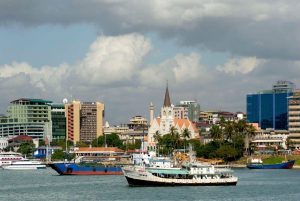The Kenyan aviation industry supports up to 620,000 direct and indirect jobs including employment in the tourism sector, a study by the International Air Transport Association (IATA) has concluded.
The aviation industry contributed nearly Sh330 billion ($3.2 billion) to Kenya’s economy, or 5.1 per cent of the country’s Gross Domestic Product (GDP), according to the IATA report.
The findings are among highlights of the Importance of Air Transport to Kenya study which was conducted by Oxford Economics on behalf of IATA.
“The study confirms the vital role that air transport plays in facilitating more than $10 billion in exports, some $4.4 billion in foreign direct investment and around $800,000 in inbound leisure and business tourism for Kenya,” said Muhammad Albakri, IATA’s regional vice president for the Middle East and Africa.
“However, by adopting policies that ensure a competitive operating environment for the airlines, Kenya could reap even greater dividends from aviation,” he added.
According to executives surveyed by the World Economic Forum, Kenya’s transport infrastructure quality score places the country sixth out of 37 African countries surveyed and 78th globally.
Kenya was ranked 31st out of the 37 African countries for cost competitiveness in the air transport industry, based on air ticket taxes, airport charges and Value Added Tax.
On visa openness, Kenya was ranked 10th out of the 37 African countries which were in the survey.
Around 130,000 aircraft land and take off from one of Kenya’s five main airports every year.
The Jomo Kenyatta International Airport is the key gateway and handled more than 5.8 million passengers in 2014.
“While Kenya’s air transport infrastructure ranks highly among African states, it is important that heavy fees, taxes and charges do not hold aviation back,” Mr Albakri said.
“We are very encouraged by the news that the Kenya Airports Authority (KAA) has embarked on a study to review Airport charges downwards.”
Mr Albakri who is soon making his first visit to Africa in his new capacity, also expected to visit Kenya.
During his visit to Nairobi, the IATA official will be meeting with key industry stakeholders including officials from the government, the Kenya Civil Aviation Authority, KAA and the African Airlines Association.




